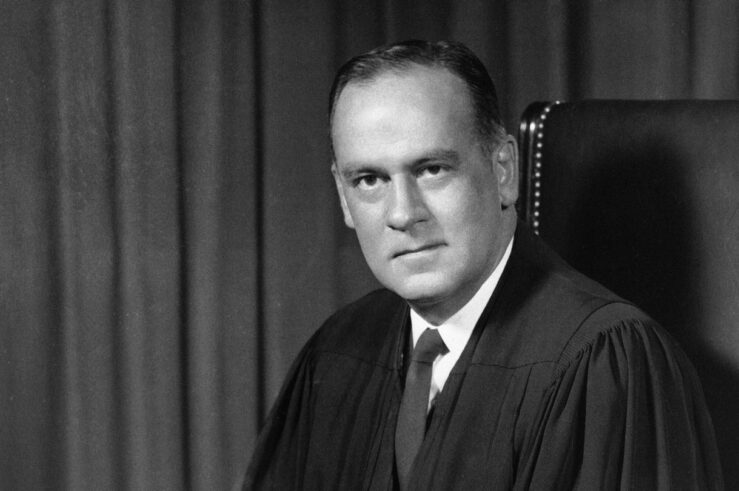Showing archive for: “Rule of Reason”
Biweekly FTC Roundup: Highly Skilled Sandwich Maker Edition
Happy New Year? Right, Happy New Year! The big news from the Federal Trade Commission (FTC) is all about noncompetes. From what were once the realms of labor and contract law, noncompetes are terms in employment contracts that limit in various ways the ability of an employee to work at a competing firm after separation ... Biweekly FTC Roundup: Highly Skilled Sandwich Maker Edition
Biweekly FTC Roundup: Grail-Shaped Beacon Edition
The lame duck is not yet dead, and the Federal Trade Commission (FTC) is supposed to be an independent agency. Work continues. The Commission has announced a partly open oral argument in the Illumina-Grail matter. That is, parts of the argument will be open to the public, via webcast, and parts won’t. This is what’s ... Biweekly FTC Roundup: Grail-Shaped Beacon Edition
Patent Pools, Innovation, and Antitrust Policy
Late last month, 25 former judges and government officials, legal academics and economists who are experts in antitrust and intellectual property law submitted a letter to Assistant Attorney General Jonathan Kanter in support of the U.S. Justice Department’s (DOJ) July 2020 Avanci business-review letter (ABRL) dealing with patent pools. The pro-Avanci letter was offered in ... Patent Pools, Innovation, and Antitrust Policy
The FTC’s UMC Statement Creates a Target for Federal Courts
The Federal Trade Commission’s (FTC) recently released Policy Statement on unfair methods of competition (UMC) has a number of profound problems, which I will detail below. But first, some praise: if the FTC does indeed plan to bring many lawsuits challenging conduct as a standalone UMC (I am dubious it will), then the public ought ... The FTC’s UMC Statement Creates a Target for Federal Courts
The New FTC Section 5 Policy Statement: Full of Sound and Fury, Signifying Nothing?
The Federal Trade Commission’s (FTC) Nov. 10 Policy Statement Regarding the Scope of Unfair Methods of Competition Under Section 5 of the Federal Trade Commission Act—adopted by a 3-1 vote, with Commissioner Christine Wilson issuing a dissenting statement—holds out the prospect of dramatic new enforcement initiatives going far beyond anything the FTC has done in ... The New FTC Section 5 Policy Statement: Full of Sound and Fury, Signifying Nothing?
The FTC Knows It When It Sees It
When Congress created the Federal Trade Commission (FTC) in 1914, it charged the agency with condemning “unfair methods of competition.” That’s not the language Congress used in writing America’s primary antitrust statute, the Sherman Act, which prohibits “monopoliz[ation]” and “restraint[s] of trade.” Ever since, the question has lingered whether the FTC has the authority to ... The FTC Knows It When It Sees It
FTC Section 5 Statement: Less Guidance Than Meets the Eye
On Nov. 10, the Federal Trade Commission (FTC) issued a new statement explaining how it will exercise its standalone FTC Act Section 5 authority. Despite the length of the statement and the accompanying commentaries from most of the commissioners, there is less guidance than one might expect from so many words. One thing is clear, ... FTC Section 5 Statement: Less Guidance Than Meets the Eye
Biweekly FTC Roundup: Commissioners Bite Horse Edition
The massive New Deal sculptures that frame Federal Trade Commission headquarters are both called “Man Controlling Trade.” And according to the Commission’s new Policy Statement Regarding Unfair Methods of Competition Under Section 5 of the Federal Trade Commission Act, “Three Commissioners Controlling the Economy” appears to now be one of the agency’s guiding principles. The ... Biweekly FTC Roundup: Commissioners Bite Horse Edition
Lina Khan’s Christmas Wish Is To Have Margrethe Vestager’s Powers
Federal Trade Commission (FTC) Chair Lina Khan has just sent her holiday wishlist to Santa Claus. It comes in the form of a policy statement on unfair methods of competition (UMC) that the FTC approved last week by a 3-1 vote. If there’s anything to be gleaned from the document, it’s that Khan and the ... Lina Khan’s Christmas Wish Is To Have Margrethe Vestager’s Powers
The End of Reason at the FTC
In a 3-2 July 2021 vote, the Federal Trade Commission (FTC) rescinded the nuanced statement it had issued in 2015 concerning the scope of unfair methods of competition under Section 5 of the FTC Act. At the same time, the FTC rejected the applicability of the balancing test set forth in the rule of reason ... The End of Reason at the FTC
FTC Rejects Economics for ‘Fairness’
The current Federal Trade Commission (FTC) appears to have one overarching goal: find more ways to sue companies. The three Democratic commissioners (with the one Republican dissenting) issued a new policy statement earlier today that brings long-abandoned powers back into the FTC’s toolkit. Under Chair Lina Khan’s leadership, the FTC wants to bring challenges against ... FTC Rejects Economics for ‘Fairness’
Noah Phillips’ Major Contribution to IP-Antitrust Law: The 1-800 Contacts Case
Recently departed Federal Trade Commission (FTC) Commissioner Noah Phillips has been rightly praised as “a powerful voice during his four-year tenure at the FTC, advocating for rational antitrust enforcement and against populist antitrust that derails the fair yet disruptive process of competition.” The FTC will miss his trenchant analysis and collegiality, now that he has ... Noah Phillips’ Major Contribution to IP-Antitrust Law: The <em>1-800 Contacts</em> Case
















